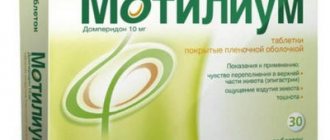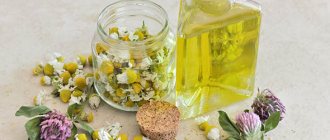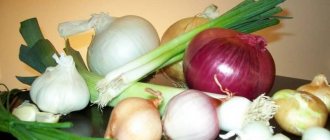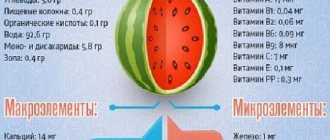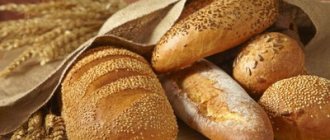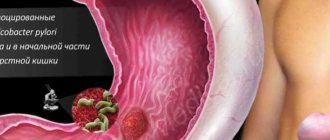Gastritis is the development of an inflammatory process that is observed in the gastric mucosa. This disease manifests itself in different ways, and therefore it is very difficult to independently determine the presence of this disease. Only a specialized doctor has the ability to determine the stage of development of the disease and determine the necessary treatment.
In order for the inflammatory process to pass quickly, it is necessary to follow a strict diet. Is it possible to eat milk, and is it possible to drink it if bacterial infection or irritation of the mucous membrane occurs?
To clearly determine the answer to this question, it is necessary to examine the chemical composition of this product. It contains a large number of microelements that are important for the human body.
At the same time, they have a beneficial effect on the functioning of the gastrointestinal tract. Milk helps the intestinal muscles contract better, protects the body from the effects of various harmful microorganisms, as well as bacteria. However, when there is an inflammatory process, which is expressed in the form of gastritis, is it possible to drink milk?
What is the importance of milk in human life?
Milk is a very healthy product.
Milk contains easily digestible protein, which restores the functioning of the abdominal organs.
This is especially true for gastritis. During this disease, small wounds begin to form on the mucous membrane, which begin to hurt if food gets on them.
This disease causes poor health and leads to problems with bowel movements. If you do not start treating this disease on time, it can cause the development of serious pathologies.
Important. Consumption of products made from milk will help improve health, which will affect human life in general. Therefore, in this case, it is worth eating dairy products more often.
Goat's milk for hyperacid gastritis
Goat milk is rightfully considered the best dietary and medicinal product for gastritis. Patients suffering from gastritis and who have developed the habit of drinking goat's milk never complain of belching, sour taste in the mouth and epigastric pain.
Fresh goat milk is allowed and is useful for any form of the disease, at any clinical stage. Goat milk proteins have a restorative effect on the epithelial layer of the stomach wall, normalize the acid content in gastric juice and even stop the proliferation of Helicobacter pylori.
Normalization of hydrochloric acid levels
Goat's milk for gastritis helps to normalize the production of hydrochloric acid in the stomach; regular consumption leads to the disappearance of belching and heartburn, and the sour taste in the mouth. In addition to reducing acid synthesis, goat's milk for gastritis with high acidity prevents the backflow of intestinal contents into the pyloric part of the stomach and irritation with bile acids.
Goat's milk has an alkaline reaction, helps to alkalize the environment in the stomach and reduce pain from gastritis and belching. In this way, goat's milk differs from cow's milk, which has a slightly acidic environment and slightly increases acidity.
Reflux Protection
Goat's milk protects the stomach from excess hydrochloric acid and provides a high level of protection for the mucous membrane from intestinal contents that are thrown into the stomach cavity from the small intestine. During the inflammatory process in the duodenum, the sensitivity of nerve receptors is disrupted; a couple of hours later, bile and digestive enzymes of the intestine are thrown into the stomach. The syndrome is called reflux. Bile is an aggressive substance that can cause a burn to the gastric mucosa. This is manifested by abdominal pain and bitter belching.
Goat's milk, entering the stomach, creates a strong protective film on the walls, saving the organ from destruction. Gradually, the inflammatory process subsides in the stomach and duodenum.
Compound
Milk contains essential vitamins A, B and E, as well as calcium, an easily digestible protein that has a whole list of properties:
- Restores the mucous membrane, heals various wounds;
- Improves the functioning of the entire digestive system;
- Prevents negative effects from microbes.
Considering the fact that the mucous membrane is damaged, you need to take this product very carefully. In this case, there are certain rules that must be followed.
It is worth seeing a doctor and getting his opinion.
Goat's milk for hypoacid gastritis
Chronic atrophic inflammatory process contributes to disruption of the regenerative processes of the gastric epithelium. The existing epithelium in the stomach quickly ages and dies, and the new one grows extremely slowly, leading to gradual depletion of the epithelial layer and atrophy of the gastric glands.
Goat milk contains biologically active substances that increase the rate of proliferation and improve the nutrition of young healthy cells of the epithelial layer. Such components include milk oligosaccharides, amino acids and polyamines, protein precursors - nucleotides. Under the influence of these biologically active elements, the gastric epithelium is gradually restored and the patient recovers. Moreover, the proliferative ability of the epithelium far exceeds the rate of death of old cells.
Unlike goat's milk, cow's milk contains much less active ingredients. This is due to the fact that goat milk is produced through apocrine secretion. With the specified method of production, the secret contains the maximum number of active components.
Gastritis, in the presence of high acidity
If you have gastritis, you should consult a specialist.
When a lot of gastric juice is released, heartburn, vomiting, and sour belching will immediately appear.
In this case, it is necessary to take measures that will reduce acidity in the body.
In this case, all foods that only enhance this process will be removed from the diet. It is also necessary to stop eating foods that promote the active secretion of gastric juice, as this can further damage the mucous membrane.
Remember! When gastritis develops, and there is increased acidity in the body, you can also eat non-skimmed milk. However, you should avoid sour cream and kefir.
If the body is too acidic, then any dairy product must be completely removed from your diet. In this case, this is justified by the fact that these products will only aggravate the development of the disease.
Milk for acute gastritis
In an acute process, the mucous membrane of the digestive canal is affected by various factors. The most common chemical exposures are alcohol, medications, or acute poisoning. The disease usually manifests itself with vivid clinical symptoms. When deciding whether to drink milk for gastritis and what dairy products are acceptable for consumption, you need to take into account the stage of the pathological process.
- The acute stage of the disease is observed on the first day. During this time, drinking milk is strictly prohibited. The patient is prescribed a strict diet. Drinks allowed include rosehip decoction, weak tea and still water.
- After 3 days, the patient is allowed to drink some milk. For gastritis, you can add a spoonful of natural honey. It is acceptable to drink a little natural cream or eat a soufflé made from natural goat milk. The attending physician provides detailed recommendations on whether it is permissible to eat fermented milk products during a certain period of the disease.
Milk does not have a particular therapeutic effect for gastritis. It has a very beneficial effect on the body. An additional beneficial quality of milk is the ability to protect the epithelial layer of the stomach and create protection from the negative effects of aggressive hydrochloric acid. Dairy products for gastritis should not be sour or excessively fatty. In particular, drinking fermented baked milk for gastritis is allowed only during remission and in small quantities.
Goat's milk, as well as increased acidity
Doctors say that during the development of gastritis it is worth taking goat’s milk as food, since it will help heal the body, as it has the following qualities:
- It contains lysozyme. This element has the ability to quickly and well restore tissues and also resume their work. In this case, it will help heal wounds on the mucous membrane. Among other things, milk will prevent the development of bacteria called Helicobacter Pylori. It contains large amounts of albumin, which helps quickly break down products into elements. Thanks to this feature, this product is well absorbed, without negatively affecting the entire digestive system. It contains a little lactose, and therefore eating it is harmless.
- If a person has increased acidity, then drinking milk will be necessary. Gradually the amount needs to be increased. This will help minimize the impact on the stomach walls. In this case, you will not be bothered by flatulence, vomiting, heartburn, nausea, and other things.
Elixir of health. Goat milk
N. I. Frolova, pediatrician of the highest category, head of the department of maternal and child health of the Ministry of Health of the Republic of Mari-El
L. R. Buldakova, dietitian of the highest category, Yoshkar-Ola Children's City Hospital, Yoshkar-Ola
Health is much more dependent
from our habits and nutrition than from the art of medicine.
D. Lubbock
Among all currently known products, natural milk has no equal. People have been eating it for more than 12 thousand years. In many ancient cultures, this drink was an important source of proteins, fats and minerals. The nutrients in it are so well balanced that humans still cannot recreate this proportion.
There are about 6,000 types of mammalian milk in the world. Milk is a white or yellow-white opaque liquid, sweetish in taste and very complex in chemical composition. All components of milk are interconnected. The milk of any animal is a single polydisperse system. But each animal from the large family of mammals has its own milk, unlike the milk of another animal.
Why goat?
Several years ago, the American Medical Association's Dietetic and Hygiene magazine wrote that the goat is the healthiest animal, and goat's milk is superior to cow's milk in every way. Goat's milk is an ideal food for infants, the disabled, especially those suffering from diseases of the digestive system, as well as for convalescents.
The goat is an extremely clean and fastidious animal, it eats only clean food from the same dishes and will even refuse an apple that has been bitten by someone. Like no other animal, goats eat almost all healing herbs on pastures: wormwood, celandine, chicory, burdock, nettle, horsetail, yarrow, sweet clover. They say that a cow eats 50 herbs, a goat eats 500. She unerringly chooses the vegetation that is richest in nutrients, thereby saturating the milk with the most valuable vitamins and minerals. This is probably why goat milk and products made from it have such a delicate creamy taste, which has long been loved by many gourmets.
Freshly milked goat's milk has bactericidal properties. It contains biologically active substances that are not found in cow's milk. Thanks to them, goat milk stays fresh for a long time. For the same reason, fresh milk is most useful, and then with each passing hour its valuable qualities are lost.
Goat's milk in baby food
Can children drink goat's milk and for what diseases should it be recommended? The answer to this question interests not only mothers of sick and healthy children, but many practicing doctors. For centuries, scientists around the world have conducted research and tried to determine the healing properties of goat's milk. The history of such research is described in Natalya Ermilova’s book “Goat’s milk, goat’s cheese and goat’s wool” (Moscow, 2010):
At the end of the 19th century, doctors found that goat's milk is a better substitute for mother's milk than others. The goat does not suffer from tuberculosis, brucellosis, or other diseases that cows suffer from. The proteins in goat's milk are of very good quality, with a higher content of picrin ithiamine than any other food. And thiamine, as you know, is one of the most important B vitamins, without which a person cannot live at any time in life. In 1906 in Paris, at the World Congress of Children's Doctors, goat's milk was recognized as the best natural substitute for human milk. Therefore, in zoos all over the world, goats are kept to feed young animals left without mother's milk, since goat's milk is suitable for almost all mammals.
However, pediatricians and nutritionists often express the opinion that the consumption of milk from mammals (in particular goat or cow) by children of the first year of life leads to an overload of the liver and kidneys with its breakdown products, and an overstrain of the secretory function of the digestive apparatus. Insufficient amounts of iron, folic acid and vitamin B12 in dairy products can cause anemia.
Naturally, goat and cow milk are significantly inferior to women's milk in terms of the balance of mineral salts, trace elements and vitamins, so human milk cannot be compared with the milk of mammals. The digestive tract of infants is not yet formed and is fully adapted only to human milk, which contains the enzyme lipase, which promotes the absorption of fat. This enzyme is not found either in cow's or goat's milk or in infant formulas.
At the same time, one of the first allergens that cause food allergies in children of the first year of life are cow's milk proteins. Allergy to proteins of this type of milk occurs in 1.1–3.7% of children in the first year of life. Goat's milk, like cow's milk, belongs to the casein group. However, goat milk contains virtually no alpha-1s-casein, which is the main source of allergic reactions to cow's milk. Therefore, goat's milk is indicated for people who are allergic to cow's milk.
Specialists in the field of nutrition I. Ya. Kon, S. N. Denisova, S. N. Vakhrameeva in the article “Adapted mixtures based on goat’s milk in the prevention and treatment of intolerance to cow’s milk proteins” (Children’s Doctor. - 2000. - No. 3. — P. 34–38) write:
The most interesting data were obtained when studying the possibility of using goat's milk and mother's milk substitutes based on it in children with intolerance and/or food allergy to cow's milk proteins. As already noted, goat's milk proteins, including the protein with the highest sensitizing activity - lactoglobulin, are structurally and immunologically different from goat's milk proteins, and allergic reactions to them are found in children much less frequently than to cow's milk proteins. In this regard, the results of many years of observations by one of the English researchers become clear, who speak of good tolerance of goat's milk by young children with intolerance to the protein of cow's milk - lactoalbumin. Moreover, according to these studies, only 1 in 100 children with a food allergy to cow's milk had symptoms disappear. Data on the high effectiveness of replacing cow's milk (or corresponding milk formulas) in children with an allergy to cow's milk proteins or intolerance to it have been obtained in a number of other studies.
Currently, adapted infant formulas based on goat's milk have been developed. Of interest are data on the possibility of using a human milk substitute based on goat's milk in children with atopic dermatitis, the proteins of which, in their antigenic structure, differ significantly from those of cow's milk (Denisova S.N., Balabolkin I.I., Sentsova T.B., Yukhtina N.V., Korotkova T.N., Vakhrameeva S.N., Belitskaya M.Yu. “The role of diet in the treatment of allergic diseases in children,” Russian Bulletin of Perinatology and Pediatrics, 2004, No. 1, pp. 20–22 ).
The high content of beta casein makes goat milk closer to human breast milk. Most of the proteins in goat's milk, due to the high content of albumins in them, are split into their component parts - they coagulate in the stomach in the form of small, loose flakes, due to which they are easily absorbed by the body without causing disorders of the digestive system.
For older children, drinking goat's milk does not pose any additional stress on the gastrointestinal tract. On the contrary, thanks to the inclusion of goat's milk in the diet, the child receives valuable nutrients and recovery from illnesses, such as frequent colds and chronic inflammatory diseases of the upper gastrointestinal tract, which occur much faster and more effectively.
Chemical composition of goat milk
The amino acid composition of goat's milk differs from cow's milk. It is richer in valine, leucine, isoleucine and cystine (total amount in goat's milk 661 [761] mg versus 663 [609] mg per 100 g in cow's milk).
Valine, leucine and isoleucine are essential branched chain amino acids that make up approximately 20% of muscle proteins, and they are necessary for the rapid recovery of muscle fibers and increased muscle endurance during intense physical training and stress. Acting together, they improve metabolism in muscle tissue and are sources of energy. These amino acids are required for the following conditions and diseases: intense physical training, stress, rehabilitation after surgery, AIDS, cancer, protein deficiency, etc.
The differences in the structure of goat and cow milk proteins are discussed in the article by I. Ya. Kon “Goat’s milk in the nutrition of young children” (Children’s Doctor. - 2000. - No. 2. - P. 55–58.):
Differences in the composition and structure of goat and cow's milk proteins underlie their differences in other properties. In particular, the clot that forms in the baby’s stomach during the digestion of goat’s milk, unlike cow’s milk, is much smaller in size and significantly less dense, which makes it easier to digest by the child’s proteolytic enzymes. To a greater extent, it resembles a clot that occurs during the digestion of human milk.
The amino acid cystine (30 [46] mg/100 g in goat milk versus 26 (16) mg/100 g in cow's milk) is one of the most powerful antioxidants, and its antioxidant effect is enhanced by simultaneous intake of vitamin C and selenium, which are high in content detected in goat milk. That is why in Eastern countries goat milk and products made from it are widely used to remove radiation and heavy metals from the body. In addition, cystine has a protective effect on liver and brain cells from damage by alcohol, certain medications, toxic substances contained in cigarette smoke, and from the harmful effects of electromagnetic radiation from mobile phones and PCs.
Goat's milk contains another essential amino acid - histidine (105 [89] mg/100 g of goat's milk versus 90 [73] mg/100 g of cow's milk). Histidine hydrochloride is used in medicine as a medicine in the treatment of hepatitis, gastric and duodenal ulcers. There is also evidence of a beneficial effect of the drug on lipoprotein metabolism in patients with atherosclerosis.
The fat globules of goat's milk are much smaller in size than those in cow's milk, which contributes to better digestibility of fat. “The smaller size of the fat globules of goat milk determines their larger surface area available for the action of pancreatic lipase, and thus the higher digestibility of goat fat than cow milk, and also contributes to the formation of a more loose clot of proteins when they are digested in the stomach,” the article says I. Ya. Konya “Goat’s milk in the nutrition of young children” (Children’s Doctor. - 2000. - No. 2. - P. 55–58).
Goat's milk fat has a different fatty acid composition than cow's milk fat and is much easier for a baby's digestive system to digest. With a fat content of 4.0–4.4%, goat milk is almost 100% digestible. Goat's milk fat contains a higher content of short- and medium-chain triglycerides than cow's milk fat, which are absorbed in the intestine without the participation of bile acids, directly into the venous network. This explains the better digestibility of goat milk fat compared to cow milk.
An important feature of goat milk fat compared to cow milk is its fatty acid composition. Goat's milk contains 67% unsaturated fatty acids, cow's milk - 61%. These acids have a unique metabolic ability to prevent the deposition of cholesterol in the tissues of the human body. In addition, the high calcium content in goat milk is a reliable weapon in the fight against “bad” cholesterol. In the presence of lactic acid, the absorption of calcium, phosphorus and iron improves, and therefore fermented milk products and not only cheeses and cottage cheese are recommended to be widely used in the diet.
Goat's milk contains more phospholipids (40 mg versus 30 mg in cow's milk). Phospholipids are essential components of the body. They have a lipotropic effect, promoting the micellization of fats in the digestive tract, their transport from the liver, and also stabilize lipoproteins and cholesterol, which can be very useful in the treatment of cholelithiasis and hepatitis.
The low lactose content (13% less than in cow's milk and 41% less than in human milk) allows this product to be consumed by people suffering from lactose intolerance.
The prevalence of lactase deficiency in Russia ranges from 10 to 80% of the population in various regions. Goat's milk completely lacks monosaccharides (glucose, galactose - easily digestible carbohydrates), cow's milk contains up to 360 mg/l. To maintain normal blood sugar levels, consumption of goat milk is more preferable in the diet of patients with type 2 diabetes mellitus, impaired glucose tolerance, obesity and metabolic syndrome.
Goat's milk is devoid of extractives and, combined with a high content of animal protein and calcium, reduces the acidity of gastric juice. Therefore, goat milk and products made from it are widely recommended by nutritionists for gastritis with high acidity, peptic ulcers of the stomach and duodenum, as well as for diseases of the liver and biliary tract. Thanks to the content of methionine, lecithin and phosphorus, goat milk products have a pronounced lipotropic effect, i.e. they inhibit the accumulation of fat in the liver and prevent fatty degeneration, and improve cholesterol metabolism. Thus, they play an important role in the prevention of atherosclerosis.
In addition to the above features, goat milk contains a lot of calcium, magnesium, phosphorus, manganese, copper, vitamins A, B, C and D. This product enriches the body with complete proteins, fats, minerals and trace elements, has a beneficial effect on normalizing metabolism, which promotes health and longevity.
Want more new information on nutrition issues? Subscribe to the informational and practical magazine “Practical Dietetics”!
SUBSCRIBE
Goat's milk, like cow's milk, is a poor source of iron, vitamin B12, and folic acid. However, there is 1.5 times more iron in goat's milk (100 mcg versus 67 mcg) than in cow's milk. Iron is necessary not only for the synthesis of hemoglobin in the blood, but also to ensure the normal functioning of the immune system. The absorption of iron in goat's milk is much better (30%) than that of cow's milk (10%), but does not reach the level of absorption of iron in human milk (50%).
A number of scientific studies have found that iron in goat's milk, similar to iron in human milk, is absorbed by children much more efficiently than iron in cow's milk. Thus, in the works of the Soviet researcher, Professor M.A. Petrova, it was established that in children who suffered from chronic dysentery and received freshly milked and cooled goat milk, within 7 months the amount of hemoglobin increased from 49.5% on average to 58.44 %, and in children who received cow's milk, the amount of hemoglobin almost did not increase (from 54 to 54.7%).
Goat milk contains a lot of potassium, the role of which is especially important in the functioning of the cardiovascular system. Potassium normalizes heart rate. Potassium salts help fight swelling by removing excess water and sodium from the body. This property of potassium is used in so-called potassium diets (diets with a high potassium content) for cardiovascular and renal failure to increase urination and sodium excretion.
Compared to cow's milk, goat's milk contains more copper, manganese and molybdenum. These minerals are responsible for hematopoiesis and control metabolic processes. Manganese is used for increased fatigue, irritability, weakened memory, diseases associated with metabolic disorders, atherosclerosis and all its manifestations - hypertension, ischemia, strokes, heart attacks.
Methods for pasteurizing milk
Milk and dairy products form an essential part of the modern food industry due to their highly balanced composition. However, heat treatment of milk is a mandatory technological operation necessary to destroy pathogenic microorganisms in milk before its processing in factories. At the same time, high temperatures can cause undesirable physicochemical changes in the protein system of milk, leading to a violation of its colloidal stability, a decrease in nutritional and biological value, and a deterioration in taste and smell.
Studies conducted by Yu. V. Balakireva and co-authors showed the mutual influence of temperature and holding time on changes in the polypeptide composition of cow and goat milk. Under all pasteurization modes, the degree of destruction of native polyproteins (proteins) reaches 38–51% of the original for cow’s milk and 82–88% for goat’s milk. The most severe pasteurization regime for cow's milk is 65 ° C - 30 minutes.
The results of studying the influence of goat milk pasteurization modes indicate that the pasteurization mode of 76 ° C - 5 minutes causes the least destruction of native polypeptides in comparison with other studied modes (Balakireva Yu. V., Zaitsev S. Yu., Karimova F. G., Akulov A. N., Akhmadullina F. Yu. “The influence of the pasteurization regime on the polypeptide composition of milk”, Fundamental Research, 2012, No. 2, pp. 170–173).
Seven troubles - one answer
Thanks to its composition, goat milk strengthens the immune system and gives the human body strength to fight various diseases. For example, goat's milk protein does not cause cross-allergic reactions with cow's milk proteins, so goat's milk can be consumed by patients with allergies.
The presence of high potassium content in goat milk provides both the daily requirement for its consumption and the need for stress and physical activity. Maintaining adequate potassium levels in the diet is especially important for the heart and blood vessels. The high nutritional value, bioavailability of goat milk and good digestibility are very important for quickly meeting the needs of essential nutrients.
Goat's milk is rich in nutrients and moderate in calories, which is why the fat it contains is usually not stored in the body as fat deposits.
Accompanying disturbances of intestinal biocenosis in various functional and chronic diseases, as well as during and after antibacterial therapy, can be easily stopped by using a diet consisting of goat milk processing products. These can be yoghurts, cheeses, cottage cheese, any fermented milk products. It is recommended to take these products 3-4 times a day for 5-7 days.
Goat's milk provides mechanical, thermal and chemical sparing of the mucous membrane of the stomach and duodenum. When ingested, it quickly reduces the acidity of gastric juice. Goat milk contains lysozyme, which, due to its antibacterial effect on pathogenic and opportunistic flora, enhances local immunological anti-inflammatory reactions.
Nutritionists recommend including it in the diet of cancer patients both during chemotherapy and for 10-15 days after it. Goat milk is rich in protein and microelements and is a fairly quickly digestible product.
Goat milk is a good product for the prevention of rickets, bone fractures, and restoration of the skeletal system after various injuries. It has a high degree of mineralization. It contains significantly (2–3 times) higher levels of sodium, potassium, calcium, phosphorus than human milk and a significantly less favorable Ca:P ratio (1.1–1.3 versus 2.3 in human milk).
During pregnancy, women are advised to include goat's milk in their diet, as it contains all the nutrients and minerals necessary for the development of the child. For example, it promotes the formation of the fetal skeletal system and keeps the mother’s teeth and nails in order. The unique biocomposition of milk supports the normal functioning of the gastrointestinal tract.
Goat milk is also indicated for women during breastfeeding. However, which cow's or goat's milk is suitable for a particular child should be decided after consultation with the local pediatrician.
Scientific studies aimed at assessing the effectiveness of goat's milk in the nutrition of young children have only been conducted in recent decades. It was found that the tolerance of goat's milk by young children, the increase in their weight and body length were no worse (or slightly higher) than the corresponding indicators in children receiving cow's milk. Similar data were also obtained in a comparative assessment of human milk substitutes based on goat and cow milk. These studies indicate the possibility of using goat's milk before cow's milk, namely: better absorption of fat and iron by children from goat's milk than from cow's milk, and good tolerance of goat-based human milk substitutes by children with intestinal colic that arose when they were fed formula milk. based on cow's milk.
A little about the problems
Despite the large number of advantages, goat milk also has a number of problematic issues. So, goat milk, like any other milk, will never replace breast milk for a child.
It must be remembered that goat milk does not contain enough folic acid, vitamin B12, and iron, which is the basis for additional vitamin and mineral correction.
Experts do not recommend buying milk or dairy products from private individuals who do not have a license to trade in this type of food product.
The main condition for the health of an adult and the proper development of children is the need to adhere to the principles of a healthy diet - this is a complete and balanced diet, its maximum variety, the inclusion of all food groups, including milk and dairy products. It must be remembered that the habit of eating healthy foods and following a proper diet must be formed from early childhood.
Source of data on the chemical composition of goat milk: “Chemical composition of food products,” ed. I. M. Skurikhina, Agropromizdat, 1987
US Department of Agriculture (USDA).// P D
Table 1. Chemical composition of milk of females of some animal species (on average), %
| Kind of animal | Water | Squirrels | Fats | Lactose | Ash |
| Cow | 88,0 | 3,2 | 3,5 | 4,9 | 0,8 |
| Goat | 86,9 | 3,8 | 4,1 | 4,4 | 0,8 |
| camel | 86,5 | 4,0 | 3,0 | 5,7 | 0,8 |
| Donkey | 90,0 | 1,9 | 1,4 | 6,2 | 0,5 |
| Female zebu | 86,2 | 3,0 | 4,8 | 5,3 | 0,7 |
| Deer | 67,7 | 10,9 | 17,1 | 2,8 | 1,5 |
| Pig | 86,0 | 7,2 | 4,6 | 3,1 | 1,1 |
Proper nutrition
If there is low acidity in the body, then it is better to drink fermented baked milk, low-fat kefir, and low-fat yogurt, as this does not have such a strong effect on the mucous membrane. You can also add cottage cheese.
If you cook various dishes with it, the food will become varied, and not the same type. In this case, it is worth paying special attention to ensuring that the dishes served for dinner are varied and tasty. This is what helps improve digestion.
If there is low acidity in the body, this can cause side effects. When you really want milk, a third of a glass will not do any harm. However, you should take non-fat milk.
The best option would be goat's milk, since due to its properties it is best absorbed by the body.
You will learn about the symptoms of gastritis from the video:
https://www.youtube.com/watch?v=5O1y61Nyo94
